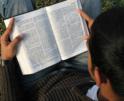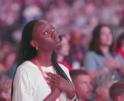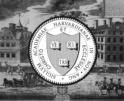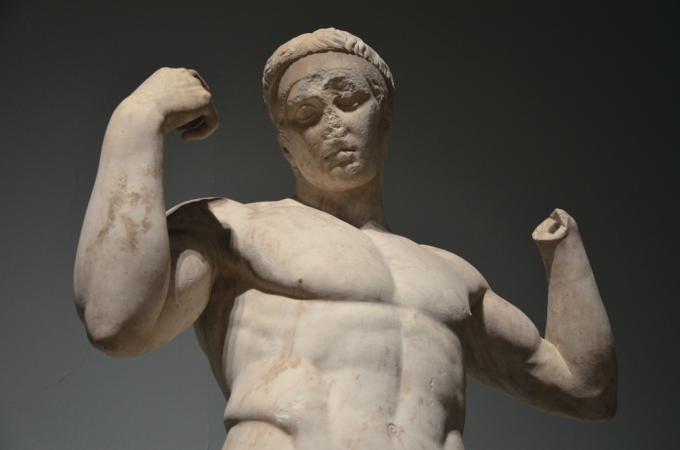
Spirituality
'Every Christian is called to become a strong athlete of Christ, that is, a faithful and courageous witness to his Gospel. But to succeed in this, he must persevere in prayer, be trained in virtue and follow the divine Master in everything...'
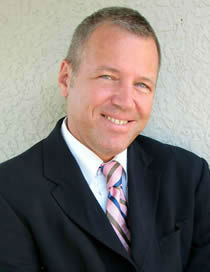
Pakaluk
The image of the athlete, used famously by St. Paul -- "I have fought a good fight, I have finished my course, I have kept the faith" (1 Tim 6:12) -- was a favorite of the Fathers of the Church also. Perhaps its most marvelous expression is in a passage by Clement of Alexandria: "This is the true athlete -- he who in the great stadium, the fair world, is crowned for the true victory over all the passions. For he who prescribes the contest is the Almighty God, and he who awards the prize is the only-begotten Son of God. Angels and gods are spectators; and the contest, embracing all the varied exercises, is not against flesh and blood (Ephesians 6:12), but against the spiritual powers of inordinate passions that work through the flesh. He who obtains the mastery in these struggles, and overthrows the tempter, menacing, as it were, with certain contests, wins immortality. ... The spectators are summoned to the contest, and the athletes contend in the stadium; the one, who has obeyed the directions of the trainer, wins the day" (Stromata, vol. VII).
Great spiritual writers draw upon the same image. The Blessed John Henry Newman described monks as a distinctive class of Christian athlete: "Our Savior speaks of the power of exorcising as depending on fasting and prayer, in certain special cases, and thus distinctly countenances the notion of a direct conflict between the Christian athlete and the powers of evil." (Life of St. Anthony). St. Pope John Paul II, a great sportsman himself, as well as a great pope, not surprisingly emphasized the same theme, "Every Christian is called to become a strong athlete of Christ, that is, a faithful and courageous witness to his Gospel. But to succeed in this, he must persevere in prayer, be trained in virtue and follow the divine Master in everything" (Homily for the Jubilee of Sports People, Oct. 29, 2000). This by the same pope who in the early years of his pontificate, before he became ill, would slip away from the Vatican dressed as a layman to go skiing in the Dolomites, hidden in plain sight, never recognized on the slopes.
The early Christians were building upon pagan ideas. Aristotle a few hundred years before them had said that it was not enough to be good in order to live well, but one had to "exercise" the virtues as well -- just as it's not enough to be in good physical condition to win glory as an athlete: one must compete and win the prize. When someone challenged his thesis that it's always enjoyable to act virtuously, by raising the example of a courageous man getting mauled in battle, Aristotle turned to an athlete to rebut the objection -- the courageous man enjoys the thrill of battle and his "victory" in standing firm, just as a boxer is happy to win the fight and the crown, even if he gets pummeled in doing so.
Aristotle, St. Paul, and Newman show how people who think in this way slip easily from athletic to military comparisons. Spiritual athleticism, it seems, is also spiritual combat. This is not surprising, given the close historical connection between sports and combat. The first Olympic contests -- throwing the javelin, races carrying armor (50 lbs. worth)--were mainly recreations of exertions in battle. Golf in 1457 was banned by the Scottish Parliament precisely because, unlike other sports, golf interfered with, rather than aided, military preparedness: the Scots men going bonkers for golf were neglecting their archery practice.
One might wonder: The life of Christ was and culminated in a Passion. He drank a chalice of suffering. He yearned for the "baptism" of suffering and that a fire be kindled. But was he an athlete too? Or does Christian athleticism apply only to those who are battling against the inward bad tendencies that result from original sin? (It seems absurd to say that Mary was engaged in spiritual combat.)
Pope John Paul II answered this one for us, in the same homily cited above: "He, in fact, is God's true athlete: Christ is the 'more powerful' Man (cf. Mk 1: 7), who for our sake confronted and defeated the 'opponent', Satan, by the power of the Holy Spirit, thus inaugurating the kingdom of God. He teaches us that, to enter into glory, we must undergo suffering (cf. Lk 24: 26,46)." As in other dimensions of the Christian life, "He has gone before us on this path, so that we might follow in his footsteps."
Have you noticed the curious connection in sports between effectiveness and beauty, that the best athletes also have the most graceful form? What does this testify to? Does something similar hold for Christian athletes? I am reminded how Christians as a matter of course used to defend the ideal of "the gentleman," good manners, tact, gentleness, gracefulness, decorum. I am reminded, too, of the biographies published at the recent opening of the Cause of Canonization for the Maltese couple, Henry and Inez Casolani. "From his very early childhood till the very end of his life, Henry Casolani was polite, well-mannered and would never quarrel with anyone." His motto was "speak no evil against anyone, but praise those who deserve it." Inez "created a relaxed and happy atmosphere at home," and, despite many illnesses, "her smiles still radiated joy to all those who came her way." These are signs of the Christian athlete.
MICHAEL PAKALUK IS PROFESSOR AND CHAIRMAN OF PHILOSOPHY AT AVE MARIA UNIVERSITY.
- Michael Pakaluk is Professor of Ethics and Social Philosophy in the Busch School of Business at The Catholic University of America. His book on the gospel of Mark, ‘‘The Memoirs of St. Peter,’’ is available from Regnery Gateway.
Recent articles in the Spirituality section
-
The 'Catena Aurea': Read the Gospel this Advent with St. Thomas AquinasMichael Pakaluk
-
Focus on GodEffie Caldarola
-
Some thoughts upon returning from the second session of the synodBishop Robert Barron
-
The actual great transformationMichael Pakaluk
-
Reunions in graveyardsEffie Caldarola

